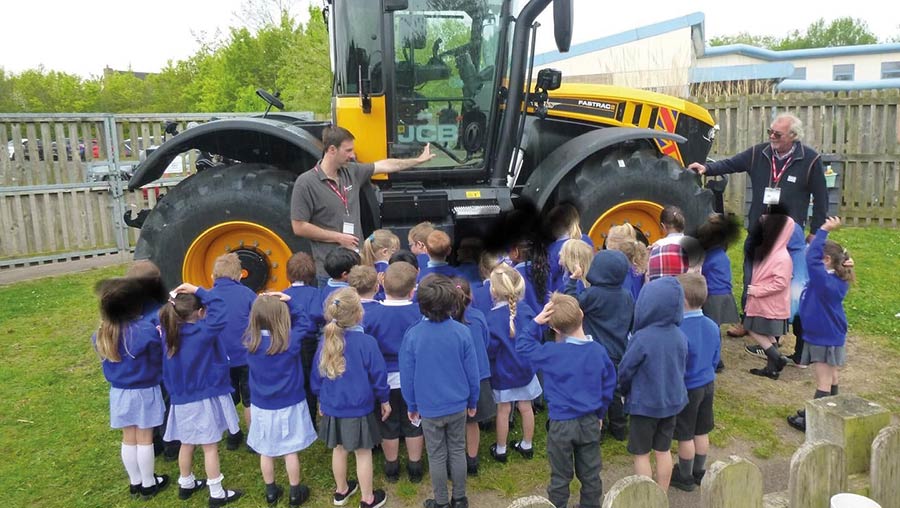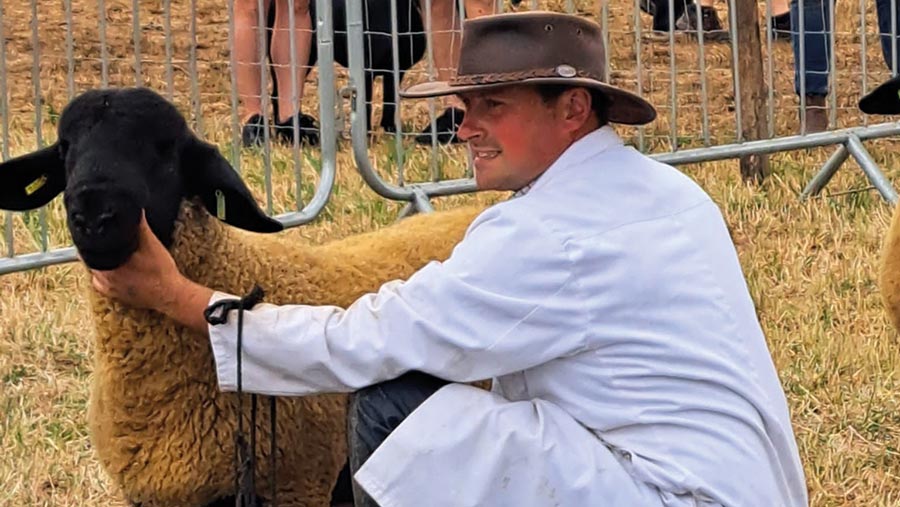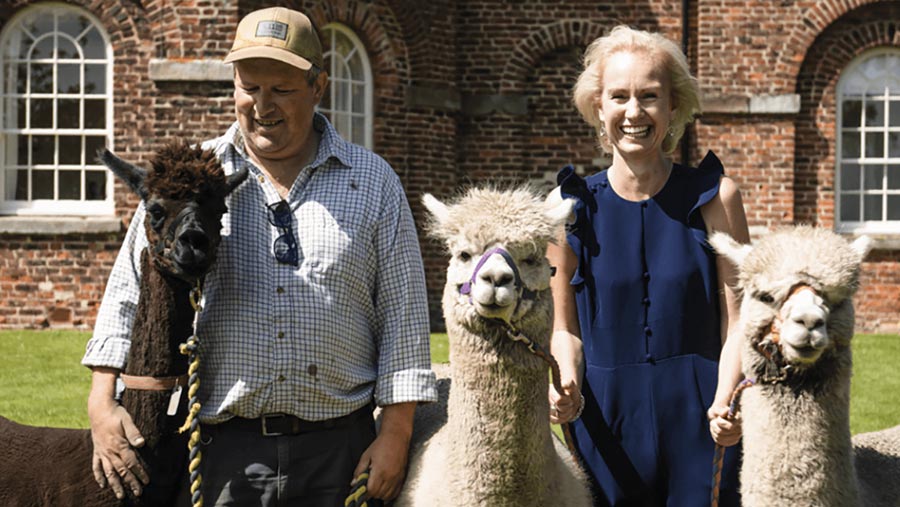How farmers are helping to educate school children about agriculture
 © Luke Abblitt
© Luke Abblitt Farmers and educators across the country are working within their own communities, educating the public about their food source and encouraging new entrants into the industry.
For the past four years, Lincolnshire sheep farmer Chris Foster has participated in the Linking Environment and Farming (Leaf) initiative, Farmer Time, which pairs classrooms across the UK with farmers on a regular video call.
“It has a great advantage,” says Chris.
“You can’t always arrange a school visit on to a farm without there being so much red tape or health and safety requirements – it’s getting more and more difficult to get that link with farming in schools.”
See also: Defra offer on educational farm access not credible
Chris uses his smartphone to access a Teams video link, which connects him, and his farm, to a classroom full of children watching on a big screen.
“They can ask questions, interact and see what I’m doing on the farm – they absolutely adore seeing the lambs or the collie dogs. They just love seeing what’s going on.
“It is giving them a baseline understanding of food – it is absolutely critical to take food production seriously, especially now that the world is changing so rapidly.”

© Chris Foster
One of the biggest difficulties for Chris is navigating the individual relationships to, and understanding of, food production that each child has, answering tricky questions around slaughter and lambing.
“For me, it is showing them that cows and sheep, and farms as a whole, are not all bad. We have a wonderful welfare system in this country and look after our livestock impeccably. It’s about showing them that positive picture.”
School visits
Farming on the Cambridgeshire Fens just outside Peterborough, arable farmer Luke Abblitt grows wheat, sugar beet, barley, oilseed rape, and potatoes across 141ha.
Known as “Farmer Luke”, he has completed more than 50 educational talks in nine schools since September last year.
Passionate about educating schoolchildren, he said: “I’m just trying to get them to realise what it is that farmers actually do – I want them to say that we grow food.”
Depending on the age of audience, Luke talks them through processes such as ploughing and drilling using mini models – and his real straight-from-farm tractor – to show how the processes work.
He also creates easy-to-follow farming videos that break down complex topics – such as “The back end of a tractor – explained”, which introduces the pto and how the spools work.
Social media
Cumbrian livestock farmer and YouTuber Charlotte Ashley uses social media to spread awareness of farming. She started making videos after she experienced first-hand the knowledge gap between farmers and the public.
“I remember a post on Facebook. It was a creep feeder that had been posted on a community forum, and the woman on the forum thought that it was some sort of mass-torture chamber for animals.
“I took the post and mocked it, but a load of my friends got in touch and said that they actually didn’t know what it was either. I quickly realised that not everyone knows what we know and it’s progressed from there.”
Charlotte hopes that her videos will reach people that may not have considered agriculture as a career before, and hopes to inspire new entrants into the sector.
“As a child, I never saw farming as a viable option for me,” she says. “It never even entered my mind that I could get into agriculture. Imagine how many people are missing out on the life and career that they are meant to be doing.
“We are connecting with an audience, and this does have an impact on people. But you do have to be responsible with what you post, particularly safety-wise.”
Farm school
For arable farmers Mark and Steph Pybus, the link between educating children and farming starts on their farm, in the Mini Explorers nursery – also known as “Farm School”.
Based in North Yorkshire, the nursery caters for children from the age of 12 weeks all the way through to primary-school age, with a unique curriculum that seeks to put families back in touch with the rural community and local food production.
Mark, also known to the children as “Farmer Mark”, is keen to share and showcase the regenerative practices on the farm.
“He talks to them about biodiversity – how we look after the soil and all the beetles and bugs that we need,” says Steph.

© Mark and Steph Pybus
“If we don’t make a serious effort to allow children and families to understand how farmers operate, protect, and provide food for them, then supermarkets will have even more power and farmers will have less.”
Allowing the children to safely explore parts of the farm, they spend a great deal of time out in nature, spotting worms, bugs, and birds.
“They know where their meat and vegetables come from, and they get lots of fresh air and exercise. I really feel that by the end of the day we should be handing back a tired, dirty, well-fed, happy child,” says Steph.
Teacher perspective
While learning on-farm and from farmers is vitally important for reconnecting children, and their families, with nature, the environment, and their food source, Anna Jarratt, headteacher at St Finian’s Catholic Primary School in Cold Ash, Berkshire, believes that the benefits run much deeper.
The children regularly visit Broad View Farm, a local beef enterprise that is just a stone’s throw from the school.
“It has been so good for our school to have that opportunity on our doorstep,” she says. “It is such an amazing environment to learn in – they get their wellies on and bounce out of their cars in the morning shouting ‘it’s farm day!’
“The curriculum is so rich and there are so many topics around a farm; there’s conservation, farming practices, sustainability, food miles.
“It’s also about where our community is and where society is – how valuable it is to have opportunities away from the day to day, where they can relax, and practice their language and communication in a non-threatening environment.”
The children take part in a range of seasonal activities on the farm, such as creating art with fallen leaves, making bug houses, pond dipping, learning about the farm’s grass-fed beef herd, and cooking sausages from the local butcher on an outdoor log fire.
“For children with special needs, in the confines of a classroom there is an expectation that they will have to pick up a pencil and fit in with the world around them that doesn’t suit them.
“When they go out onto the farm, they are all the same – they are all learning together, being physical and in the fresh air. It’s where they thrive as a little person, and where they fit into the world that everyone else is in,” says Anna.
